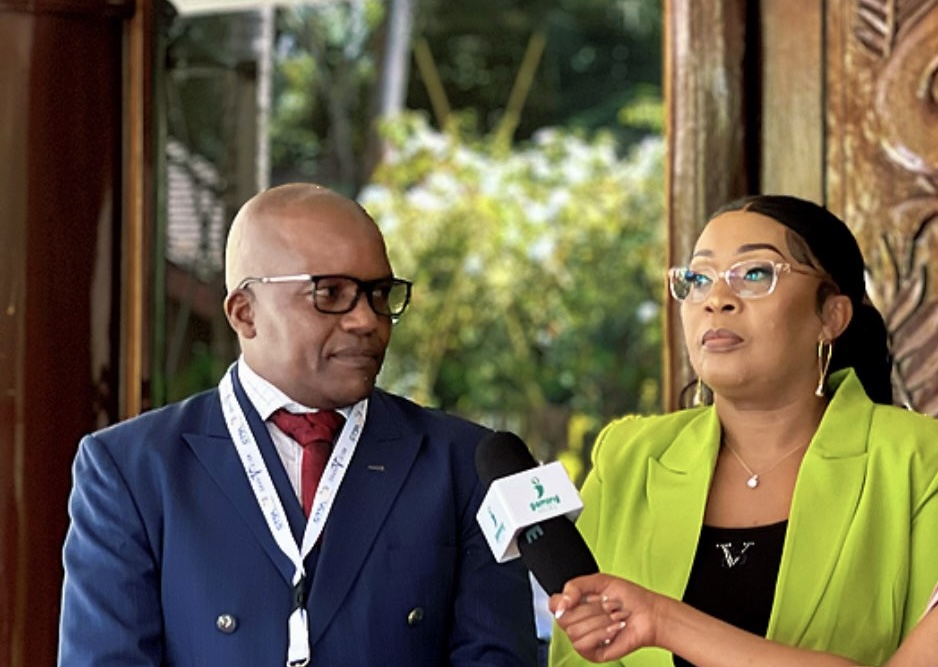News
BCLB Has Failed Kenyans Terribly In Tackling Gambling Fraud: A Regulator That Enables What It Should Prevent
While some operators face scrutiny and penalties, others with deeper pockets or better connections operate with seeming immunity.

An investigative expose reveals how Kenya’s betting watchdog has become a toothless tiger, allowing fraudsters to feast on vulnerable citizens while collecting licensing fees from the very operators it should be shutting down
The numbers are damning: 58 illegal betting websites exposed in April 2025 alone, operating fraudulent schemes under the pretence of legitimate platforms. But this is just the tip of the iceberg in what has become Kenya’s most scandalous regulatory failure.
The Betting Control and Licensing Board (BCLB), tasked with protecting Kenyan gamblers from exploitation, has instead become their greatest enabler.
Under the leadership of Director Peter Mbugi, this institution has transformed from a regulatory watchdog into what critics are calling “a revenue-collection agency with a gambling problem.”
The Scope of Institutional Failure
The evidence of BCLB’s spectacular failure is overwhelming. Despite claims by Mbugi that the board has shut down over 106 unauthorized gambling websites, illegal operators continue to thrive across Kenya’s digital landscape, preying on unsuspecting citizens with impunity.
These unlicensed websites have taken advantage of Kenyan consumers by running fraudulent operations, collecting money from the public through mobile payment channels, while BCLB remains conspicuously absent from meaningful enforcement action.
The board’s own admission reveals the depth of its incompetence. The shutdown of 58 gambling platforms came only after “complaints from concerned citizens over exploitation by various gambling operators” – a reactive measure that exposes how BCLB relies on public outcry rather than proactive monitoring to identify illegal operations.
A Regulator Captured by Industry Interests
Perhaps the most damning indictment of BCLB’s failure lies in its cozy relationship with the gambling industry it purports to regulate. The board has become what industry insiders privately describe as “a licensing mill” – more interested in collecting fees than protecting consumers.
Recent proposals to increase minimum capital requirements to Sh50 million and licensing fees to Ksh200 million reveal a regulator focused on revenue generation rather than consumer protection. These fee hikes, critics argue, will simply drive operators to the black market while enriching BCLB’s coffers.
The selective enforcement patterns paint a picture of institutional corruption. While some operators face scrutiny and penalties, others with deeper pockets or better connections operate with seeming immunity. This two-tier justice system has created a breeding ground for fraud and consumer exploitation.
Digital Age Failures in an Analog Institution

Betting Control and Licensing Board (BCLB) Director Peter Mbugi and Chair Dr. Jane Mwikali during a past event.
BCLB’s technological incompetence is perhaps its most glaring weakness. In an era where most gambling occurs online, the board operates like a relic from the pre-digital age. The institution lacks basic digital surveillance capabilities, allowing fraudulent platforms to operate anonymously from foreign servers while fleecing Kenyan consumers.
The board’s failure to establish robust digital monitoring systems has created a regulatory black hole where unethical practices flourish unchecked. Platforms engage in rigged odds manipulation, withhold winnings from legitimate winners, and run fake jackpot promotions – all while BCLB remains blissfully unaware or willfully ignorant.
Consumer Complaints: A System Designed to Fail
Victims of betting fraud describe a complaints system that seems deliberately designed to frustrate and discourage legitimate grievances. The board’s current complaint mechanism requires formal written submissions, creating bureaucratic barriers that discourage many victims from seeking redress.
Those brave enough to navigate the complaint process report months of delays, dismissive responses, and ultimately, no meaningful action. This systematic failure to address consumer grievances has emboldened rogue operators while eroding whatever remaining public trust the institution might have had.
The Youth Exploitation Crisis
Perhaps BCLB’s most damaging failure is its inability to protect Kenya’s most vulnerable population – young people. With gambling advertisements saturating media platforms and social media influencers promoting betting platforms to impressionable audiences, an entire generation is being systematically exploited.
The board’s recent 30-day suspension of gambling advertisements is a cosmetic measure that does nothing to address the underlying problem of predatory marketing targeting minors and financially vulnerable individuals.
The BCLB has failed to implement meaningful age verification systems, allowing underage gambling to flourish. It has failed to enforce responsible gambling measures, allowing platforms to target vulnerable populations with aggressive marketing. Most importantly, it has failed to educate the public about gambling risks, leaving citizens defenseless against sophisticated fraud schemes.
Corruption Allegations: Where There’s Smoke
While concrete evidence of corruption within BCLB remains elusive, the pattern of selective enforcement and cozy industry relationships raises serious questions about institutional integrity. Sources within the gambling industry, speaking on condition of anonymity, describe a licensing process where connections matter more than compliance.
The board’s reluctance to provide transparency in licensing decisions, combined with its failure to enforce consistent standards across all operators, creates an environment where corruption can flourish unchecked. Until BCLB submits to independent oversight and full transparency in its operations, these allegations will continue to cast a shadow over its credibility.
The Human Cost of Regulatory Failure
Behind every statistic lies a human tragedy. Kenyan families have been destroyed by gambling addiction enabled by BCLB’s failures. Young people have lost their futures to predatory platforms that the board should have shut down years ago. Elderly citizens have been defrauded of their life savings by operators who should never have received licenses.
The Consumers Federation of Kenya (COFEK) has repeatedly highlighted these failures, but BCLB continues to operate in a bubble of institutional arrogance, seemingly immune to criticism or calls for reform.
The time for cosmetic changes has passed. BCLB needs complete overhaul or replacement. The institution requires:
Immediate Measures:
– Complete digitization of monitoring systems with real-time surveillance capabilities
– Independent oversight body to review all licensing decisions
– Transparent, time-bound complaint resolution mechanisms
– Mandatory consumer protection measures for all licensed operators
Structural Reforms:
– Political independence from government interference
– Leadership changes to restore credibility
– Inter-agency coordination with law enforcement and financial regulators
– Public reporting requirements for all enforcement actions
Long-term Solutions:
– Legislative review of BCLB’s mandate and powers
– Regular public audits of the institution’s performance
– Consumer representation on the board
– Mandatory impact assessments for all policy changes
Conclusion: A Regulator Unfit for Purpose
The evidence is overwhelming: BCLB has failed Kenyans terribly in tackling gambling fraud. What was meant to be a shield protecting vulnerable citizens has become a sword wielded by predatory operators against the very people it should protect.
The board’s transformation from regulator to enabler represents one of Kenya’s most significant institutional failures. Until fundamental reforms are implemented, BCLB will continue to be not just a weak link in the fight against gambling fraud, but an active participant in the exploitation of Kenyan consumers.
The question is no longer whether BCLB can reform itself – the evidence suggests it cannot. The question is whether Kenya’s political leadership has the courage to replace this failed institution with a regulator that actually serves the public interest.
Kenyans deserve better. They deserve a regulator that protects rather than profits, that serves consumers rather than industry interests, and that fights fraud rather than facilitating it.
Kenya Insights allows guest blogging, if you want to be published on Kenya’s most authoritative and accurate blog, have an expose, news TIPS, story angles, human interest stories, drop us an email on [email protected] or via Telegram
-

 Grapevine2 weeks ago
Grapevine2 weeks agoRussian Man’s Secret Sex Recordings Ignite Fury as Questions Mount Over Consent and Easy Pick-Ups in Nairobi
-

 News7 days ago
News7 days agoTHE FIRM IN THE DOCK: How Kaplan and Stratton Became the Most Scrutinised Law Firm in Kenya
-

 Investigations1 week ago
Investigations1 week agoMulti-Million Dollar Fraud: Three Kenyans Face US Extradition in Massive Cybercrime Conspiracy
-

 Economy1 week ago
Economy1 week agoIran Demands Arrest, Prosecution Of Kenya’s Cup of Joe Director Director Over Sh2.6 Billion Tea Fraud
-

 Business1 week ago
Business1 week agoA Farm in Kenya’s Rift Valley Ignites a National Reckoning With Israeli Investment
-

 Africa2 weeks ago
Africa2 weeks agoFBI Investigates Congresswoman Ilhan Omar’s Husband’s Sh3.8 Billion Businesses in Kenya, Somalia and Dubai
-

 Grapevine3 days ago
Grapevine3 days agoA UN Director Based in Nairobi Was Deep in an Intimate Friendship With Epstein — He Even Sent Her a Sex Toy
-

 Politics2 weeks ago
Politics2 weeks agoSifuna, Babu Owino Are Uhuru’s Project, Orengo Is Opportunist, Inconsequential in Kenyan Politics, Miguna Says


















